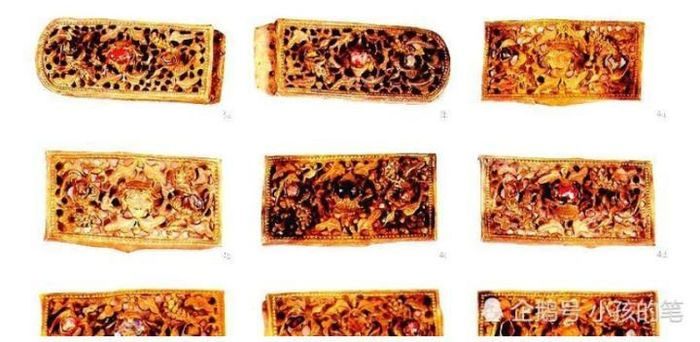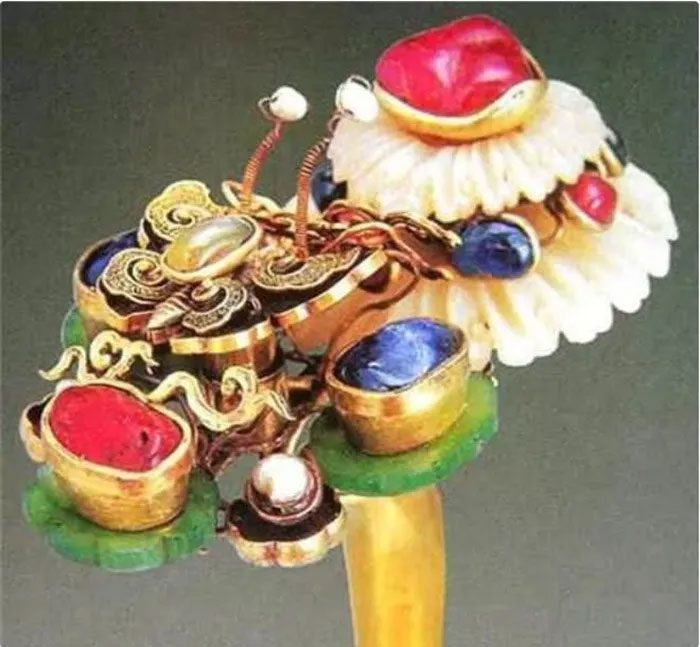Surprisingly, when explosives were used to blast the mountain, a large amount of gold and treasures scattered everywhere.
In the 1960s, a unit of the Chinese military stationed in Cao Yu Town, Anji County, Zhejiang Province, was tasked with building a bridge. In need of granite, the unit decided to use explosives to blast the mountain. Over 200 personnel were mobilized to the scene to carry out this task.
However, something unexpected happened. As the explosives detonated, an astonishing amount of gold and treasures suddenly erupted around, leaving everyone stunned. Chaos ensued as curious townspeople rushed in to collect the gold and silver. The military unit had a hard time halting this scramble for treasure.

As the explosives detonated, pieces of gold from the ancient tomb scattered everywhere. (Photo: QQ News).
Subsequently, the incident was reported to the local authorities. The Provincial Cultural Relics Bureau dispatched a team of archaeologists to Cao Yu Town to gather the artifacts. Upon their arrival, the experts discovered an ancient tomb beneath the explosive blast area.
They then visited the homes in the town to retrieve the gold and treasures that had been taken. As a result, the archaeological team managed to recover 5 gold items, 23 silver items, 5 pieces of jade, agate, amber, and 3 fans. According to their assessment, these items were all exquisitely designed, with some jade jewelry potentially classified as national treasures. The total value of the recovered artifacts could reach 200 million RMB (approximately 660 billion VND).
After collecting the artifacts, the experts continued to excavate the ancient tomb. They found an inscription inside the tomb. According to the engraving, the tomb belonged to Wu Lin, an official from the Ming Dynasty, who once held the position of governor in Shandong Province.

One of the exquisitely crafted items from the ancient tomb that was blasted. (Photo: QQ News).
Wu Lin was born in 1485 and passed away in 1553. During his lifetime, he was a renowned scholar and was one of the “Four Great Scholars” of the imperial court. Wu Lin was revered by the people for his integrity and uprightness. Later, disillusioned with the political infighting, he resigned and returned to his hometown, where he died.
However, the experts questioned how a person known for his integrity like Wu Lin could have such an abundance of gold and treasures for burial. So, where did these artifacts come from?
They discovered numerous ancient documents proving that the gold and treasures in Wu Lin’s tomb were placed there by his children. Wu Lin had four sons, who were also very talented. Not wanting their father’s tomb to be too modest, the four sons decided to add more burial items. This decision ultimately left future generations astonished.


















































